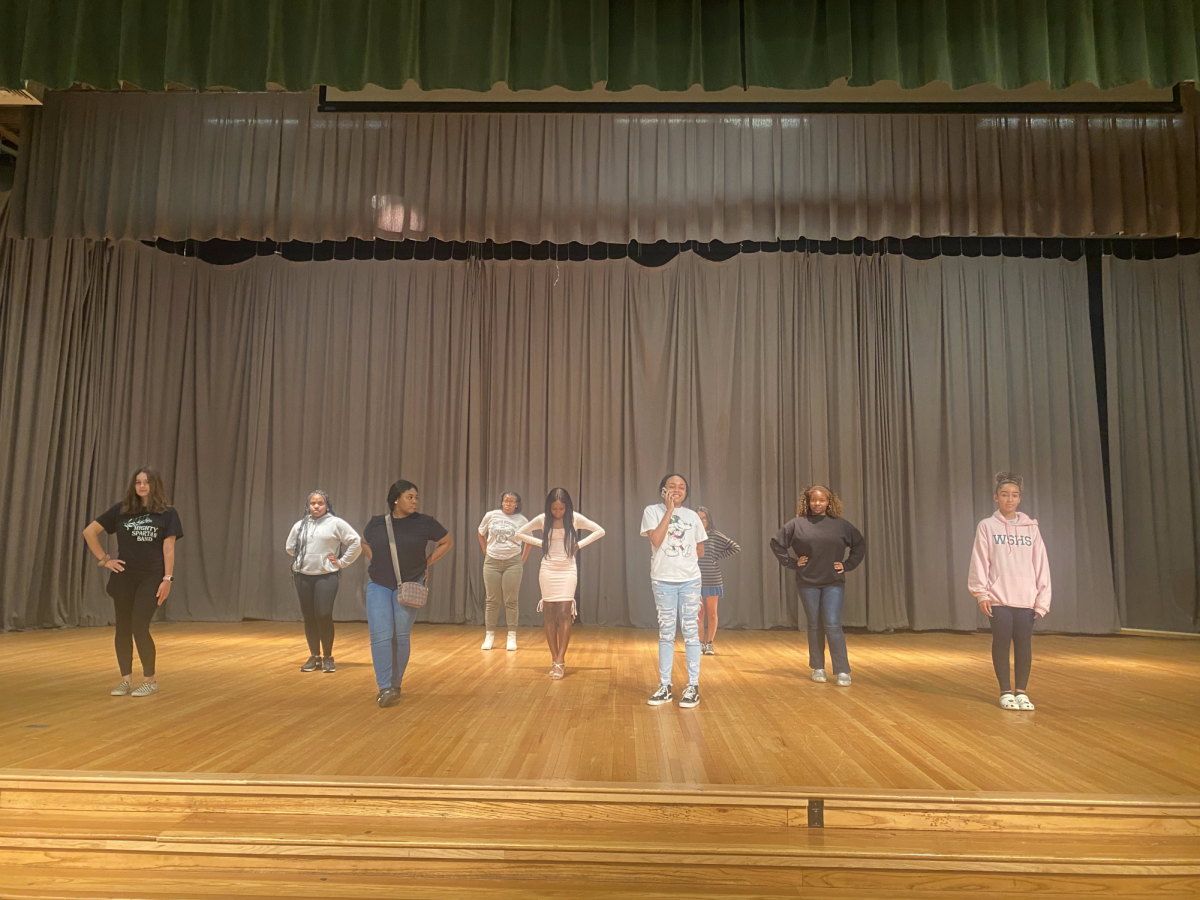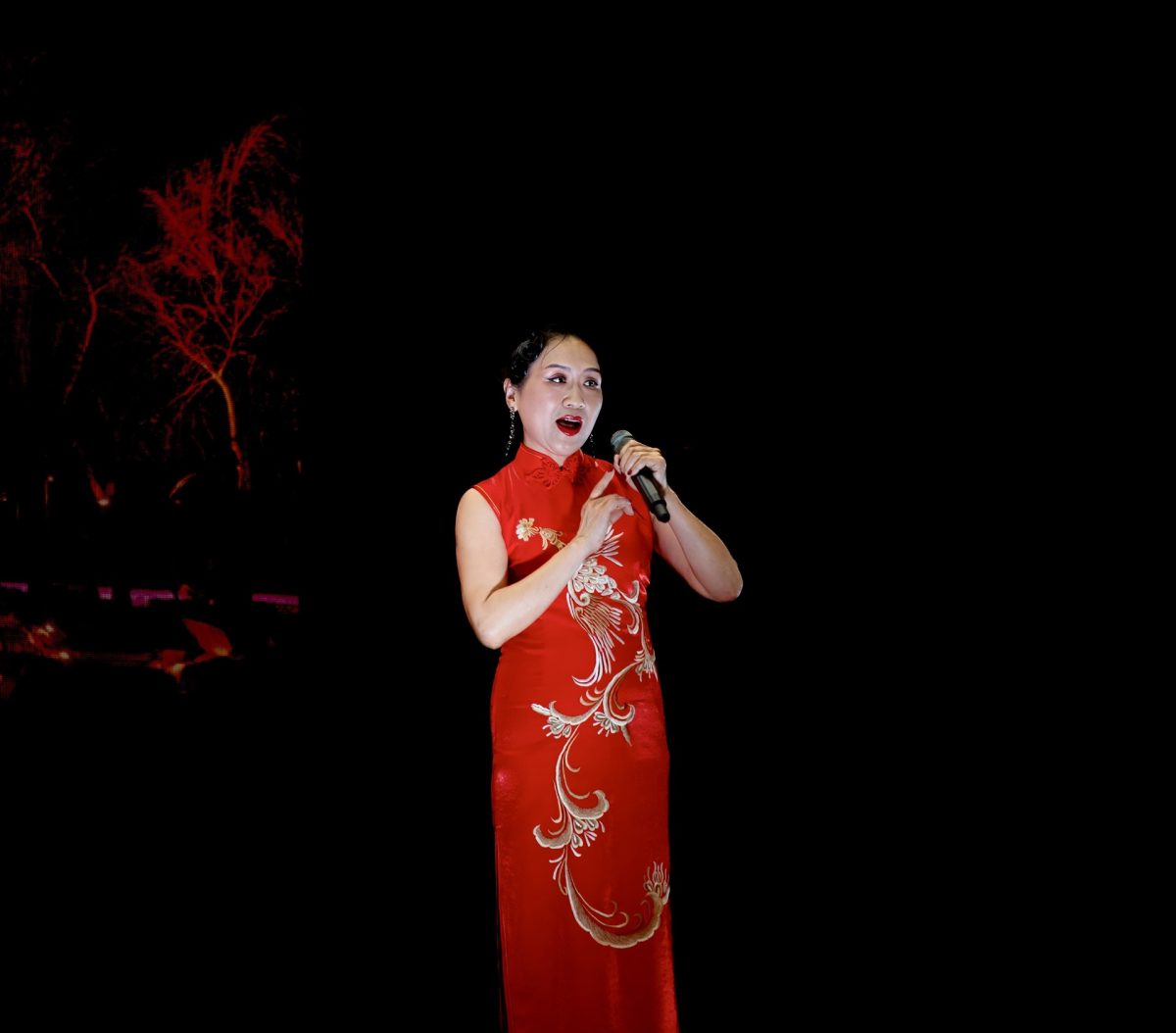Though celebrated for years before its founding, Black History Month was officially recognized in 1976 to commemorate the overlooked accomplishments of Black Americans.
Today, Black History Month is celebrated in the month of February to honor the legacy and impact of African Americans throughout history.
“It goes back to Carter G. Woodson and National Negro Week,” Rachel Collins, African American History, AP (Advanced Placement) African American Studies and World History teacher said. “It was a way for African Americans to connect with their history and to have pride in their history.”
This year, students have been working since September to organize and produce the second annual Black History Month program at White Station. Students started by coming up with various ideas for the overall creative concept or plan for the program and are currently working on performances and rehearsals.
“Months ago, we started with the rough drafts and getting some ideas,” Lea Walker (12) said. “We finally cut down the ideas and came up with a pretty solid plan. This past week we have been doing our practices, three times a week for an hour each day. [There has] been a lot of work going into it.”
Although they have a rough idea of the order and features of the program, the outcome is dependent on participation and student availability. Flexibility is a big aspect of the preparation process.
“The program is a living document so there [are] changes constantly being made due to student participation,” Collins said. “Stuff happens so it is constantly changing. It [will not be] cemented until probably the week before.”
The program will feature groups and individuals showcasing a range of performances from spoken-word poetic literature to dance. There will also be students working as tech crew to facilitate the show.
“We like to be inclusive and White Station is always so diverse,” Collins said. “We have students from choir, unarmed drill, majorettes [and] individual students using their talents from dance to poetry to theater and students behind the scenes.”
Not only are the students performing, they are also leading certain portions of the production. While Collins is the official sponsor, individual students have been given leadership opportunities within the productions to be in charge of specific groups.
“There is adult help, but many students have gotten to take on leadership opportunities for helping with the program,” Walker said. “Many students have been assigned different roles including overseeing roles and leadership roles. For instance, I’m in charge of the whole pageant section. Overall, the main leader is Mrs. [Collins], she is the sponsor of this whole program but she was really generous to give the students a very big role in being able to lead and put everything together.”
In comparison to last year’s program, Walker believes this year’s program will tell more of a story, following a sequence of events that make up a larger picture. Each talent will play a role in the overall plot.
“This year they’re coming up with a more fluid storyline, to connect everything as one big story,” Walker said. “While everything is different, it’s all connected in a way. Each piece is different but it is relevant to the main picture of what we’re going for.”
Because there are a variety of students participating, Collins believes the program is a good way for students to feel more connected to the school. The program is an opportunity to interact with the whole student body on a different level than they may have before.
“A lot of students who participate in the program typically are not our usual honors or AP students, there are some, but it gives students who may not have found their place here yet somewhere to participate and somewhere to shine and a way to connect to White Station, also [to] feel that White Station is connecting with them,” Collins said.
Danielle Barbee (12) believes the program will provide Black history with long-overdue acknowledgment and exposure and will highlight the extensive influence of Black culture in America and celebrate it.
“It’s important to see,” said Barbee. “Black history isn’t talked about enough. Oftentimes it’s a small section in a really big book and that’s all you hear about it. But Black people have been in this country since its beginning and that should be celebrated.”
Barbee will be part of the pageant portion of the program and will perform with the step team. She anticipates that the program will be educational, entertaining and inspiring to the audience.
“I hope it conveys a message of culture and unity,” said Barbee. “I hope it’s a learning and a fun experience for everybody. I hope it honors Black history and all those different things and I hope people have fun and they want to learn more about Black history and be a positive part of it.”
Walker hopes the program will not only highlight African American culture and history, but also emphasize the individuality of all students. She believes the program will enlighten people on what they and others are capable of.
“I hope that it tells not just Black students but the whole body of White Station that everybody has something special about them and they should be proud of [their] culture and [their] identity,” Walker said. “Every culture has many amazing people who have many special gifts and talents. You may not even think of it or even realize it until you sit there and are amazed by what you or the people at the school have to bring to the table. Also how wonderful Black culture is and how deep it is … we’re not just one broad thing, we are all specific individuals and our history and culture is very deep and rich.”
Walker wants the program to shed light on more than just Black history. The purpose of the program is to highlight and appreciate the history and culture of Black Americans, but Walker hopes it will encourage people of all cultures to reflect on their identity and culture.
“I just hope that everyone enjoys the program and that they really appreciate the hard work that has [gone] into it,” Walker said. “[I hope] that they learn a lot from it. This is a way for [students] to learn to appreciate themselves and be proud of themselves and be proud of their culture.”





































